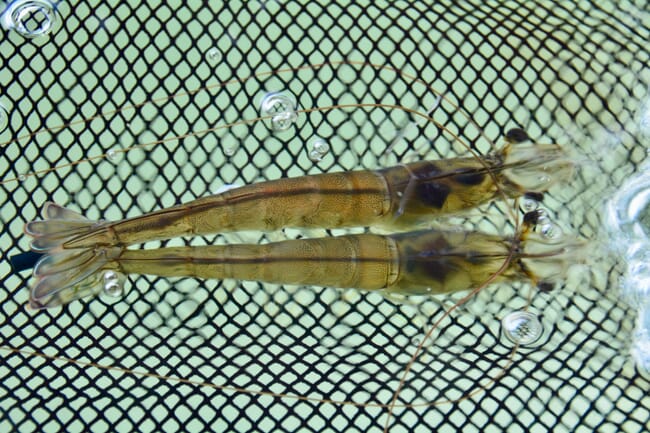The GSSI benchmark is based on United Nations Food and Agricultural Organization (FAO) guidelines for the ecolabelling of seafood, and aims to give clarity on seafood certification schemes. To become recognised, schemes must demonstrate alignment with a number of essential components including the robustness of the standard itself, as well as how it is applied, managed and audited. In addition to the essential components, the ASC Shrimp Standard also met an additional 16 supplementary components, covering issues including antibiotic restrictions, survival rates and waste management.

© Benchmark Genetics
Michiel Fransen, head of standards & science at the ASC, said: “This is further evidence of the rigour of the ASC Shrimp Standard, which has been helping to drive up improvements in shrimp farming around the world since its launch, and credibility of ASC as a certification scheme.
“As part of ASC’s mission to drive up standards across aquaculture, we are also working to continuously review and revise our own standards. A review of the Shrimp Standard is currently underway, looking at strengthening a number of aspects including requirements around mangrove forests, minimising impacts to areas around farms, and the sourcing of broodstock. In addition, we will be adding stronger requirements on plastic waste and ghost gear to all our standards.”
The shrimp standard was launched in 2014 and there are currently over 320 shrimp farms, producing over 220,000 metric tonnes, certified around the world. The majority of these are in Vietnam, Ecuador, Indonesia and Honduras.
In addition to its farm standards, ASC will soon be releasing the first version of its feed standard. This will detail requirements for the feed manufacturer, its direct ingredient manufacturers and the primary raw material production of both marine-based and plant-based commodities. Transparency and increasing sustainability requirements will be core to this standard.
The Shrimp Standard includes over 100 performance indicators that farmers must meet to show that they are protecting the environment and respecting their workforce. Requirements include the prohibition of antibiotic use, monitoring of water quality, paying workers fair wages, treating them well, providing worker training and engaging in meaningful consultation and dialogue with local communities and indigenous populations.
ASC certified farms must also implement health management plans to reduce disease prevalence. In many parts of the world shrimp farming can impact on mangrove forests which are vital habitats for many species, but the ASC Shrimp Standard forbids any clearing of mangrove forests and in some case will require the restoration of cleared forests.


